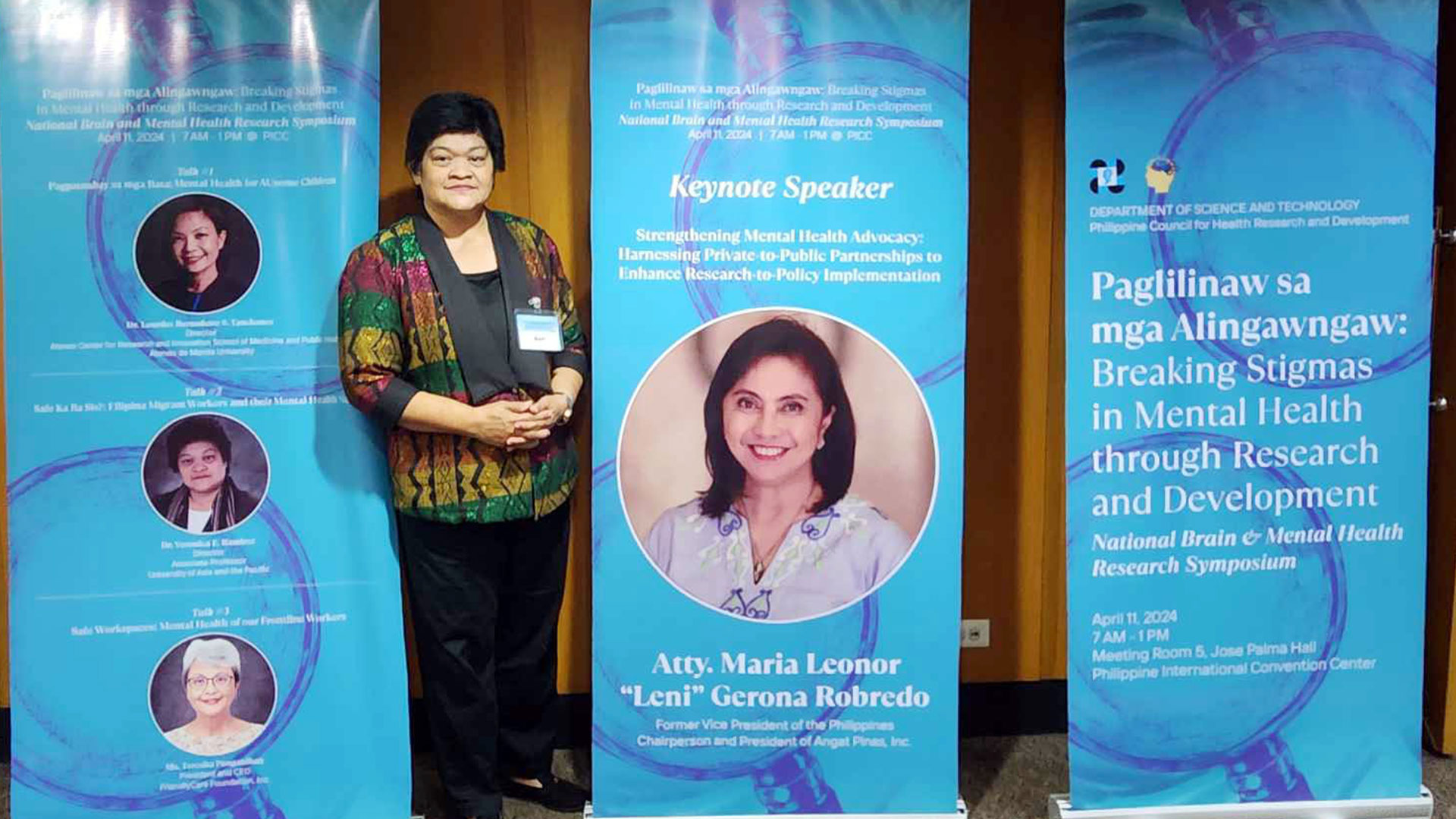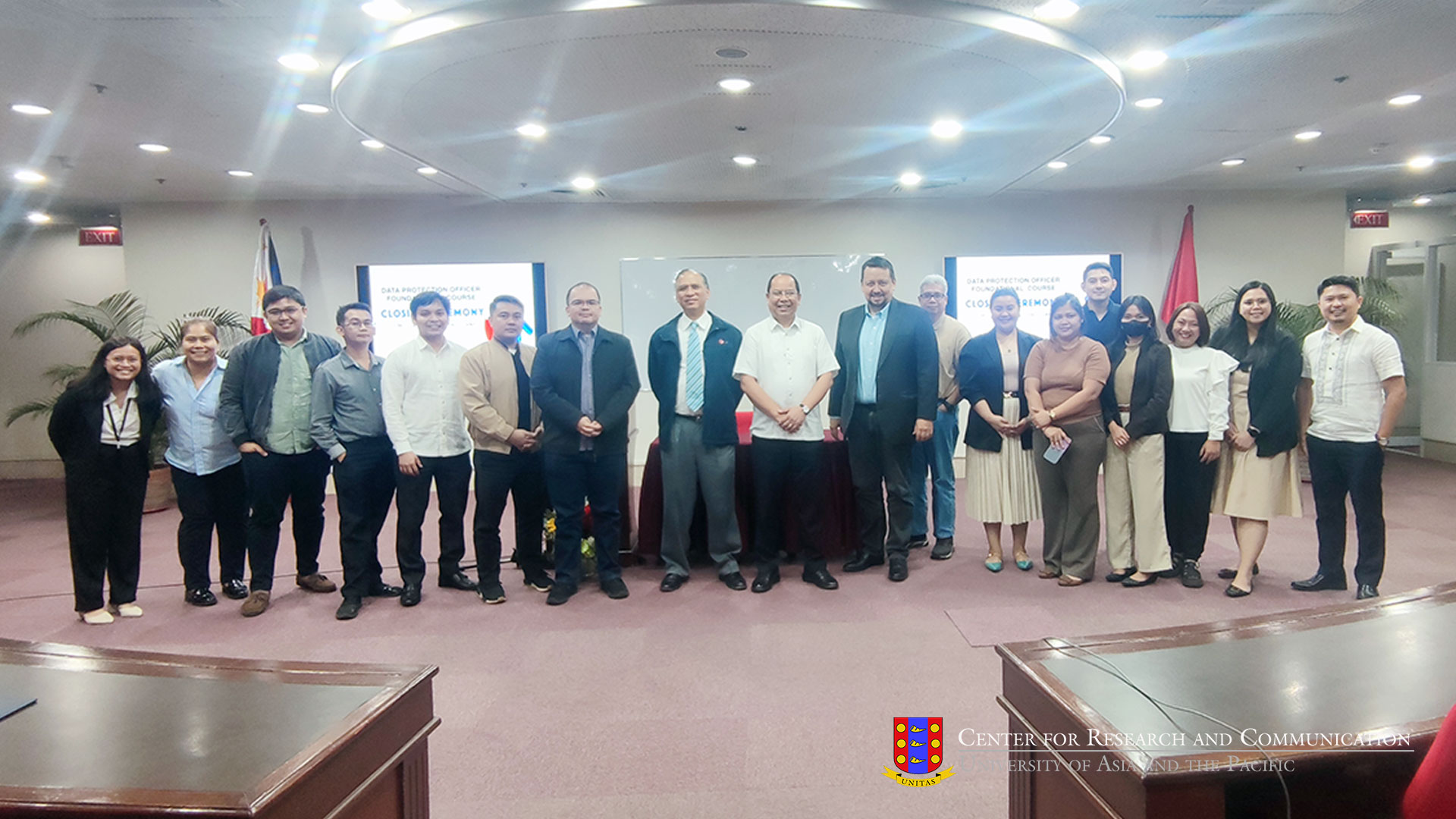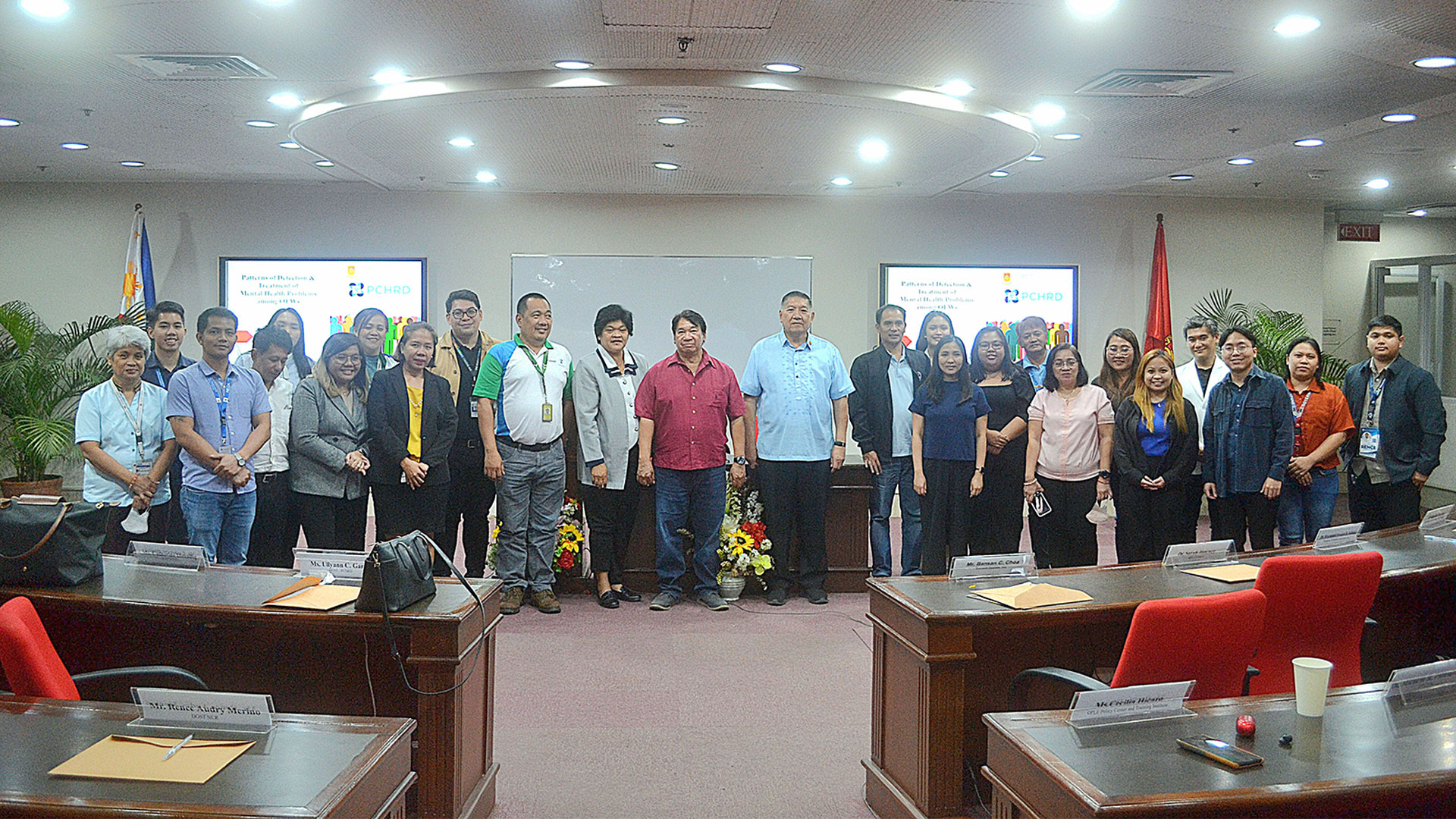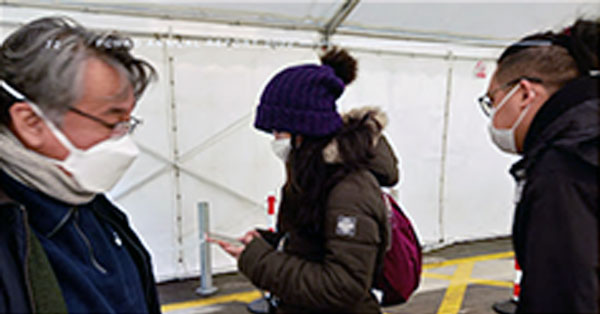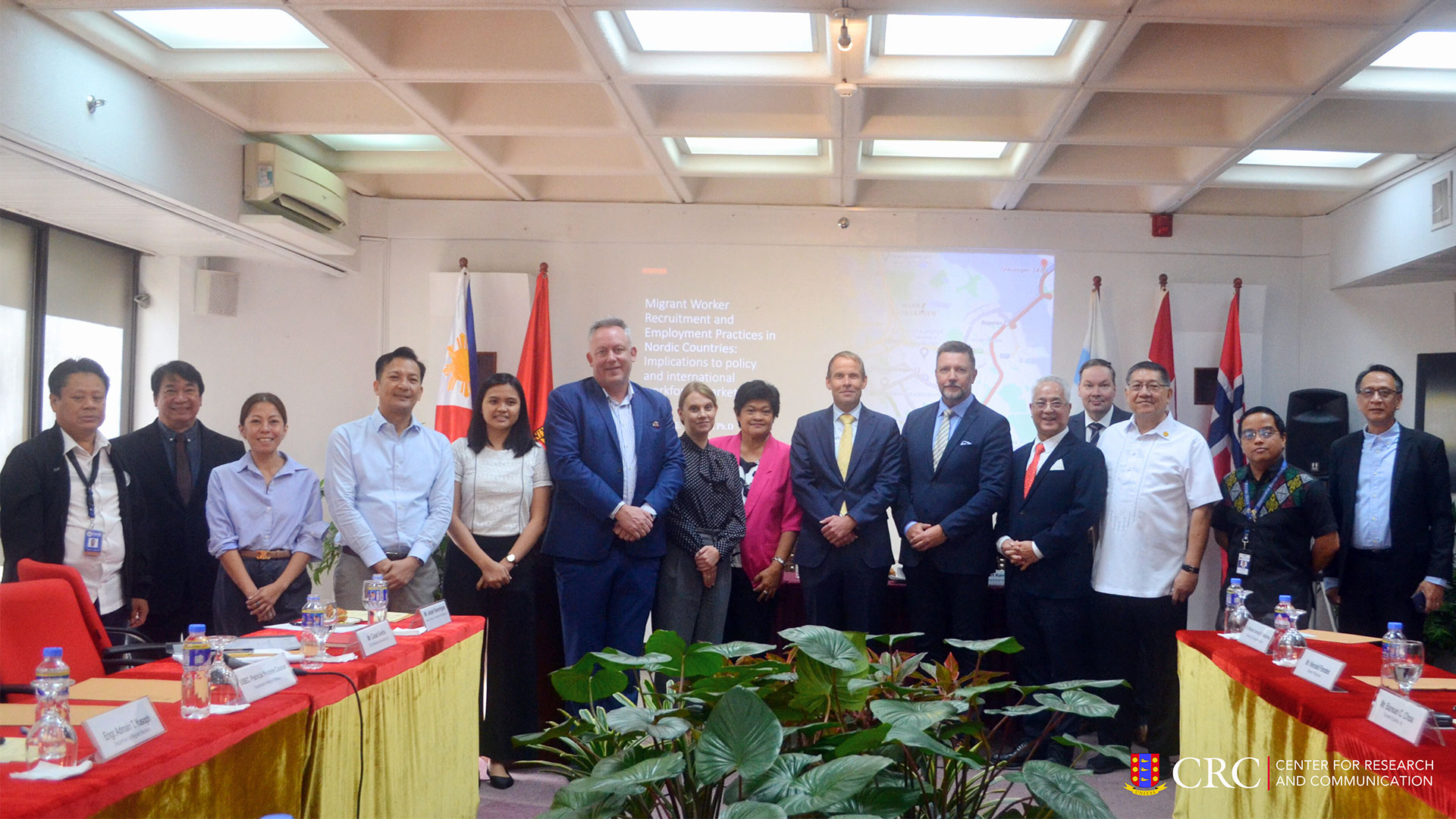
From left to right: Engr. Admain T. Yusoph, Department of Migrant Workers; Mr. Lambert Ramirez, UA&P; Ms. Jo-nie Raagas, Embassy of Denmark; Asec. Levinson Alcantara, Department of Migrant Workers; Ms. Maria Alyyssa Dacasin, International Labour Office; Mr. Jesper Svenningsen, Nordic Chamber of Commerce of the Philippines, Inc.; Ms. Laura Karjalainen, Embassy of Finland; Dr. Veronica Ramirez, UA&P; H.E. Christian Halaas Lyster, Ambassador of Norway to the Philippines; Mr. Mika Eskola, Tuocon Oy and Time to Give Back Säätiö Foundation; Mr. Cesar Averia, EDI Staffbuilder International, Inc.; Mr. Jussi Huhtanen, Zitro; Mr. Bansan Choa, Surewell Equities, Inc.; Mr. Charleson Hermosura, OUMWA, Department of Foreign Affairs; and Mr. Edgar Beltran, EDI Staffbuilder International, Inc.
[UA&P, Pasig City, Philippines] – In a groundbreaking study commissioned by the Time to Give Back Säätiö Foundation and Tuocon Oy, Finland, researchers Dr. Veronica Esposo Ramirez and Mr. Lamberto Francisco A. Ramirez shed light on the experiences of Filipino migrant workers in Nordic countries. The study, entitled “Migrant Worker Recruitment and Employment Practices in Nordic Countries: Implications to policy and international workforce market,” offers key insights into recruitment, employment conditions, and reasons for migration.
Presented during the Research Validation Meeting at the University of Asia and the Pacific on January 16, 2024, organized by the Center for Research and Communication, the study explores the recruitment processes, employment conditions, and experiences of Filipino workers in Denmark, Finland, Norway, and Sweden.
Key findings of the study highlight the elements needed for the recruitment of migrant workers, elements that support or obstruct the recruiting and placement, and supporting elements available during and after their employment. The study also explored the assessment of Filipino workers in the Nordic countries of their employment conditions and experiences, their Push Factors (from their country of origin), Pull Factors (towards employment in Nordic countries), and common Quit Reasons.
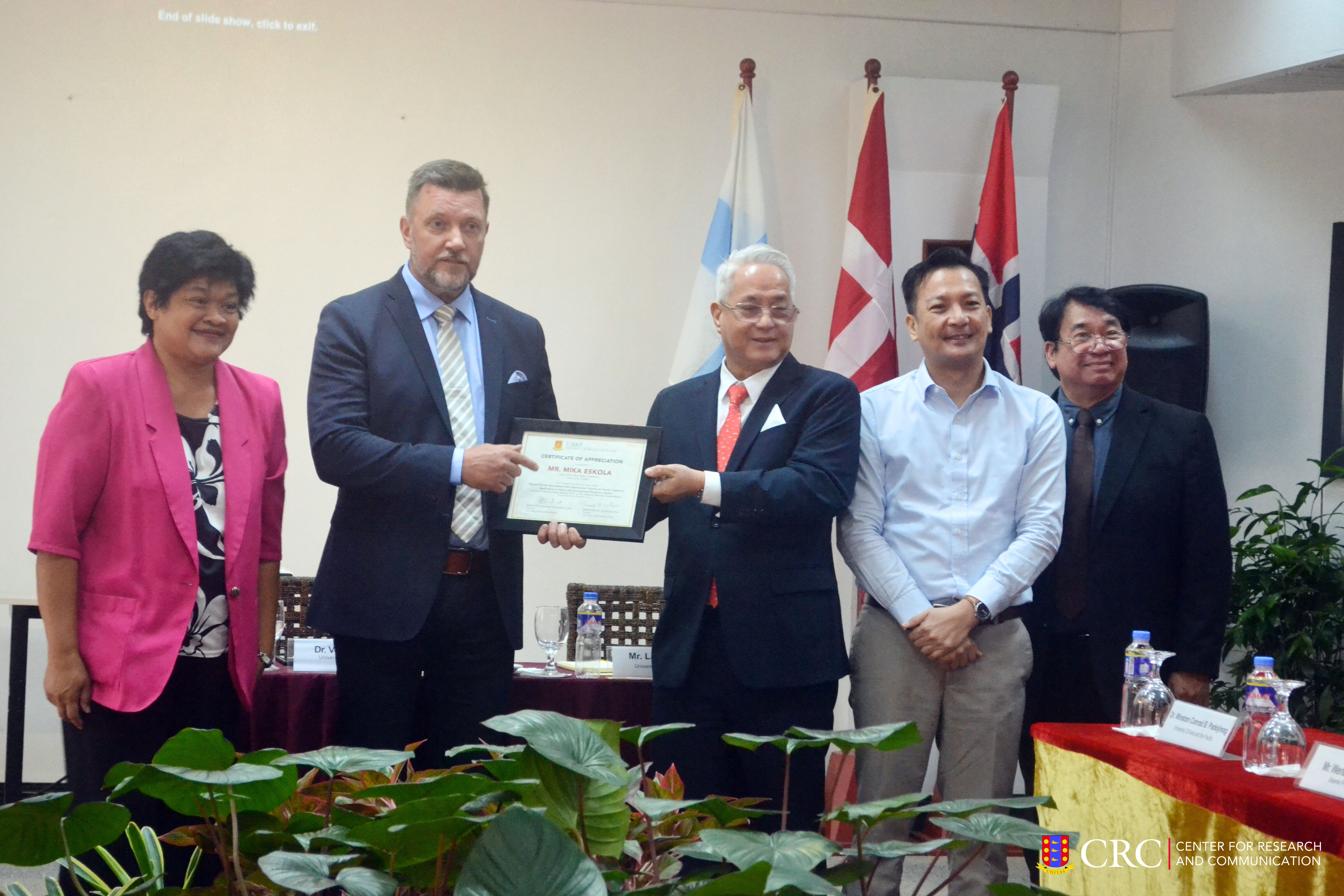
From left to right: Dr. Veronica Ramirez, UA&P; Mr. Mika Eskola, Tuocon Oy and Time to Give Back Säätiö Foundation; Mr. Cesar Averia, EDI Staffbuilder International, Inc.; Asec. Levinson Alcantara, Department of Migrant Workers; and Mr. Lambert Ramirez, UA&P
In terms of recruitment, the study revealed that Filipinos land employment in or migrate to Nordic countries through family reunification, interracial marriage, Au Pair program, study program, or through Recruitment agencies. Finland has the most systematic recruitment process where there is partnership between recruitment agencies in Finland and in the Philippines.
Meanwhile, there are factors that obstruct the recruitment and placement of Filipinos in the Nordic such as language requirement, educational qualifications, employment competition, immigration policy, unethical recruitment and the absence of recruitment structure with government support.
Amidst challenges, Nordic countries offer enticing prospects for Filipino workers, with ‘liveability’ emerging as a primary reason for migrant workers to work and stay in the Nordic countries, as evidenced by work-life balance, clean environment, and safe and secure places everywhere. Paid taxes go to free health benefits and education, pension, efficient public utilities and unemployment support. High appreciation of skills and passion for work (Filipino chefs, medical and health workers) add to the esteem of Filipinos collectively and as individuals; plus the egalitarian relationship in the workplace also gives more value to work and stay in the region.
As for reasons for departure, the survey results highlight common reasons prompting Filipino workers to leave their jobs in Nordic countries, including better opportunities elsewhere, dissatisfaction with work-life balance, relocation preferences, heavy workloads, and inadequate compensation.
The study’s conclusions underscore that medical professionals, specifically nurses and caregivers, constitute the biggest bulk of the migrant workers in Nordic countries followed by chefs, kitchen crew and cleaners, alongside demands for emerging professions, such as engineers and IT experts.
As Nordic populations continue to age, experience a negative replacement rate, and the national workforce approaches retirement age with no signs of abating, the need for migrant workers is expected to rise.
In response, recommendations include advocating for government-to-government agreements to accelerate recruitment and employment, fostering bilateral trade agreements, stronger marketing efforts in both the sending and receiving countries is necessary to promote both work placement in receiving countries and investments in the country of origin, promoting ethical recruitment practices, and enhancing skill development in Philippine higher education institutions. New knowledge and skills should be developed such as robotics, artificial intelligence and other technology-assisted matters can be added to the curriculum where they are relevant.
Moreover, further research is proposed to be conducted to study the enrolment structure at the tertiary level of education in Nordic countries juxtaposed vis-à-vis the various sectors of the economy and social services to determine the mismatch and gaps and therefore the demand for migrant workers over time.
This study serves as a valuable resource for policymakers, recruitment agencies, and relevant stakeholders involved in facilitating the migration and employment of Filipino workers in Nordic countries. By offering insights to enhance recruitment processes, improve working conditions, and address evolving labor market demands, this study blazes a trail for informed decision-making and proactive measures in international labor migration.
———————————————————–———————————————————–—————————–———————
Learn more about CRC’s contributions in Migration and Overseas Filipino Work. In this field, CRC has brought about in-depth insight into the lives of the millions Filipino migrant workers whose contributions make a sizeable chunk of the Philippine economy – from their education and recruitment in the Philippines to their concerns and life strategies while working overseas, to their successful reintegration upon returning to the country.
The Bank of the Philippine Islands (BPI) Foundation, Inc., established the BPI Professorial Chair for Migration and Overseas Filipino Work (MOFW) on February 3, 2014. For years, the holder of the professorial chair has been undertaking intensive research on migration and development to guide policy makers, and publish teaching resource materials on the integration of migration into the K-12 Basic Education Curriculum subjects.
To find out more about CRC, send an email to [email protected], or message +639054280727, or follow us on LinkedIn. You can also find us on Facebook.

